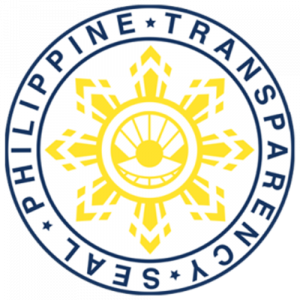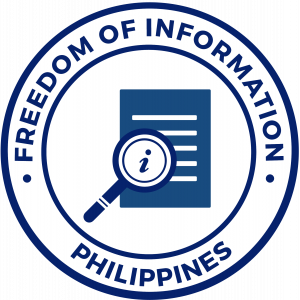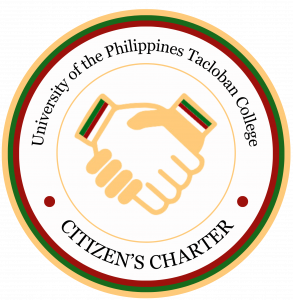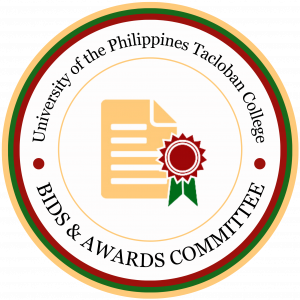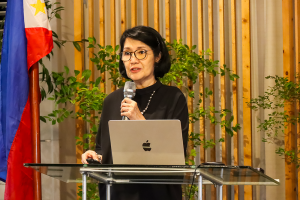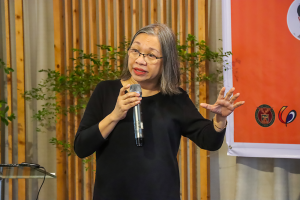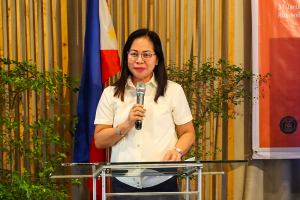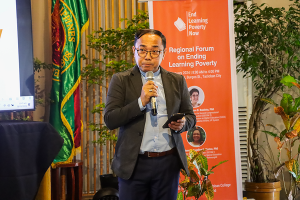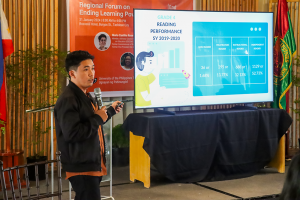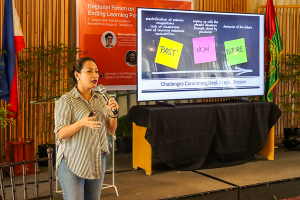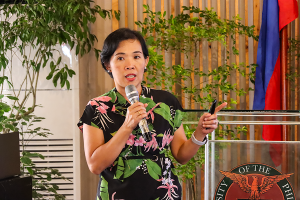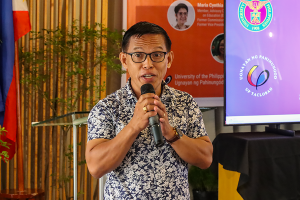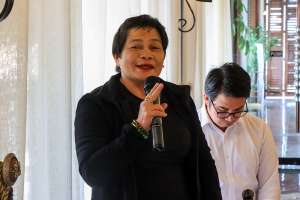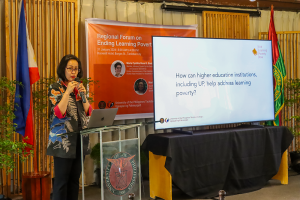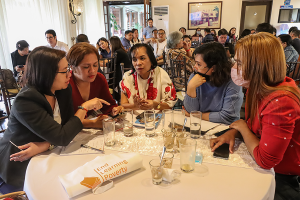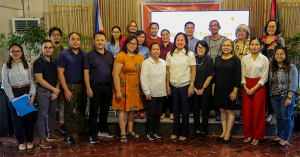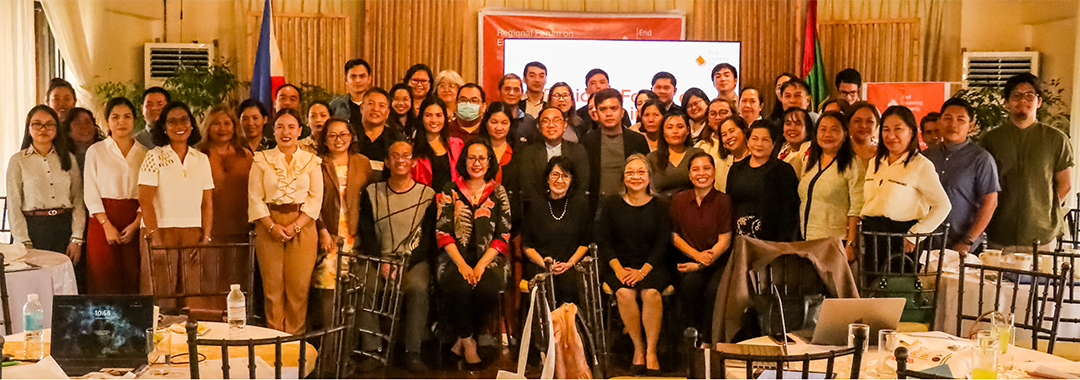
UP Tacloban holds Regional Forum on Ending Learning Poverty
2 February 2024
Ugnayan ng Pahinungod
Academic leaders from UP Tacloban and education supervisors and school heads from the 13 schools divisions of the Department of Education in Region VIII convened on 31 January 2024 at Rosvenil Hotel, Tacloban City to discuss the problem of learning poverty in Eastern Visayas and the Philippines as a whole.
Second Congressional Commission on Education (EDCOM 2) Advisory Council member Dr. Maria Cynthia Rose B. Bautista set the tone for the forum with her discussion of key points from the recently released EDCOM 2 Year 1 report. Dr. Bautista discussed selected indicators of poor learner outcomes (in particular, reading literacy, math literacy, and scientific literacy) in basic education, and research findings on contributory factors to the Philippine learning crisis. These factors include late start of formal schooling, lack of parental support and low models of aspirations, lack of learning materials and school buildings, malnutrition and hunger, as well as policy discontinuities, gaps in curriculum implementation, and weak support systems for education. Dr. Bautista is former UP Vice President for Academic Affairs and former Commissioner of the Commission on Higher Education.
EDCOM 2 Standing Committee for Basic Education member and UP Ugnayan ng Pahinungód System director Dr. Marie Therese A. P. Bustos, the second speaker, presented a brief analysis of the Philippines’ learning poverty profile and an update on what has been done so far to address learning poverty, in particular the National Learning Recovery Program launched by the Department of Education in July 2023 and more specifically the national reading program. Dr. Bustos also mentioned the five pillars of an education approach to ending learning poverty, namely, learners who are prepared and motivated to learn, teachers who are effective and valued, classrooms that are equipped for learning, schools that are safe and inclusive, and well-managed education systems.
Representatives of the 13 schools divisions in Region VIII provided a brief overview of the state of learning poverty in their respective divisions based on the results of the Comprehensive Rapid Literacy Assessment (CRLA) and Numeracy Assessment (NA) and revised Philippine Informal Reading Inventory tests for English and Filipino. They also presented initial results of the implementation of the national reading program and regional and school-based reading intervention activities, such as the Key Stage 1 Foundation for Effective Learning Transitions (K-3 FELT) program of Region VIII.
Following the division presentations, UP Tacloban Dean Dr. Patricia B. Arinto led a brief discussion of how the University of the Philippines and other higher education institutions can help address learning poverty in Eastern Visayas. The following areas for assistance and collaboration were identified by the forum participants: development of quality-assured reading materials and interactive videos; retooling of teachers, especially early grade teachers (Key Stage 1); monitoring and evaluation of reading interventions and research to inform education policies and programs; training and deployment of NSTP students as literacy tutors; and community-based skills training for marginalized and disadvantaged youth through Ugnayan ng Pahinungód. Dean Arinto also briefly presented UP Tacloban’s proposed children’s university project, which will be launched in the first quarter of 2024.
The regional forum is the opening activity in UP Tacloban’s strategic initiative to help address learning poverty in Eastern Visayas. The initiative includes forging collaborations with state universities and colleges in Region VIII and other stakeholders.
